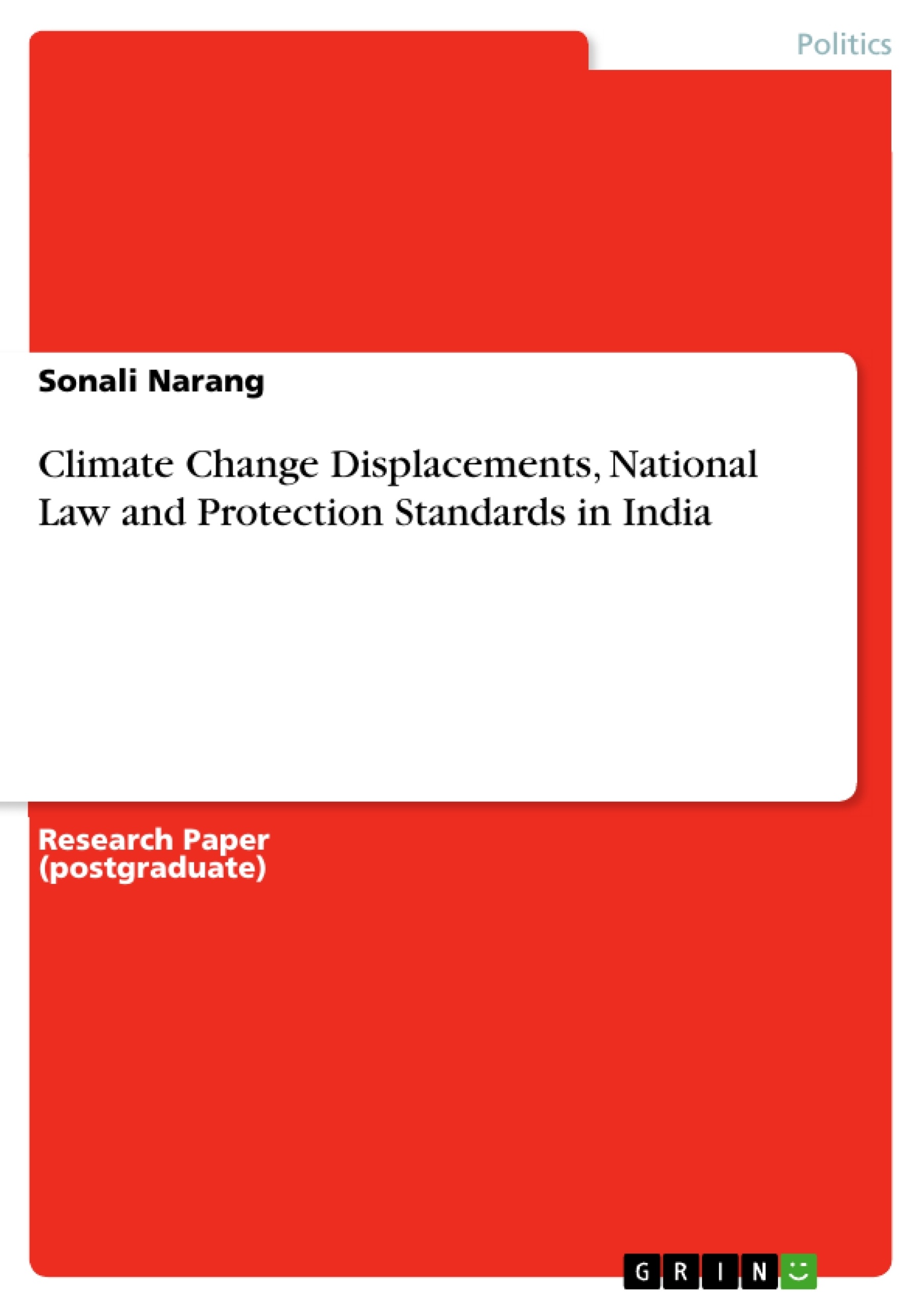This paper will examine how the national law initiatives can be broadened and revived with upcoming ‘climate refugees’.
India’s geopolitical position in South Asia is popular for asylum seekers, migrant workers and future flows of climate refugees. Without the legal recognition, refugees in India have difficulties in accessing basic facilities such as employment, medical facilities, education and health care.
It is now widely known that climate change will significantly affect India. There are few studies available on how climate change is going to affect the migration of people. It has been claimed that 70,000 people of the 4.1 million living in the Indian part of the Sundarbans islands would be rendered homeless by 2020. India is home to nearly 190,000 refuges originating from various countries around the world. Yet, refugee protection in India is regulated solely at policy level by national administrative authorities. There are no laws that distinguish between refugees and foreigners in India. Thus, there is a clear gap within the law which requires immediate action and attention. India needs to develop its own Refugee Protection laws.
- Quote paper
- Dr Sonali Narang (Author), 2017, Climate Change Displacements, National Law and Protection Standards in India, Munich, GRIN Verlag, https://www.hausarbeiten.de/document/375954



